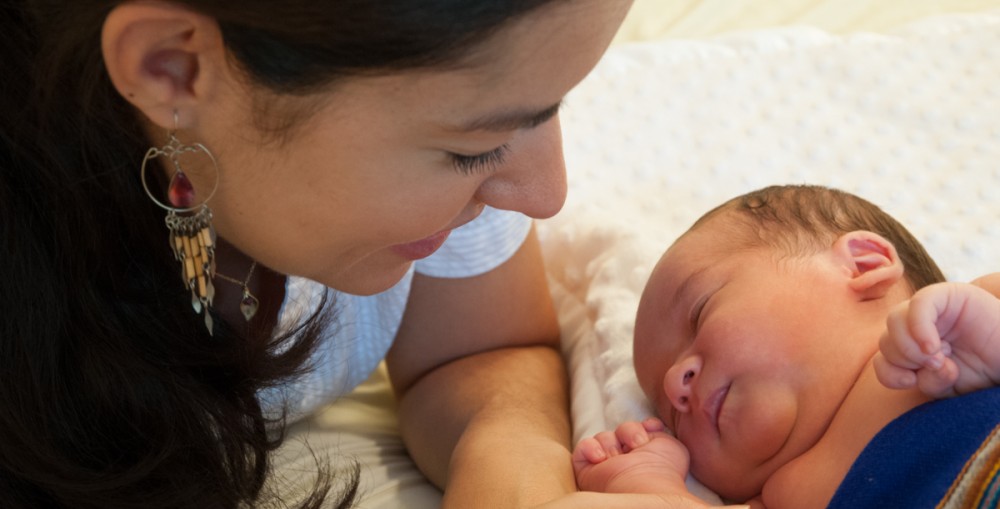I came across this article online and the story was also featured on NPR: All Things Considered. It discussed the reality of maternal health in an epidemic as deadly as Ebola. Most of us probably are aware of the effects of this outbreak and the implications it is having on the countries in West Africa. What’s important to remember is that this disease is not only taking lives, but it is causing damage to entire communities, economics, health systems, and much more.
As most people know, Ebola is transmitted through bodily fluids, including amniotic fluids, vaginal secretions, placenta, and blood, and so can be transmitted very easily through OB and OR cases. Ebola has been stated as a “death sentence” for pregnant women as this article states that “one small study found a fatality rate around 95 percent” (NPR, 2014). Usually the fetus dies before labor or immediately after birth because the virus not only infects mom, but infects the fetus and the amniotic fluid that surrounds the baby.
As one could imagine, the death of healthcare workers in this outbreak has been significant and even more so with healthcare workers helping with deliveries. Because of this, there is a huge fear and stigma of pregnant women in Ebola infected countries. Many women are refused to be treated at healthcare centers just because of the possibility that they could be infected. As a result, many women are dying due to childbirth or having stillborn babies. Many are not supported at all during their pregnancy. That said, if the virus doesn’t kill them, many times their pregnancy will due to lack of healthcare.
This among many other healthcare situations are going untreated because of the stigma against Ebola and the fear of the disease. Even if the global community can begin to contain this outbreak, there will be huge repercussions to the communities and health systems in the countries. I believe the more we can educate and spread awareness of these realities, the more we can help to fight this stigma. What do you think about how we can move forward to support these women to get the access to care that they need?
Doucleff, M. (2014, November). Dangerous Deliveries: Ebola Leaves Moms and Babies Without Care. NPR: National Public Radio. Retrieved from http://www.npr.org/blogs/goatsandsoda/2014/11/18/364179795/dangerous-deliveries-ebola-devastates-womens-health-in-liberia

While this sounds a bit cold, I honestly don’t believe anything can be done to improve maternal health until the Ebola outbreak is contained. As the numbers stand, the outbreak is on track to double every 20 days. Aid workers cannot build facilities fast enough to meet demand, and there is a significant lack of healthcare workers to care for the patients. The small number of local health workers staffing the health outposts are at significant risk of infection, due to lack of training and access to PPE. The best way we can improve health outcomes for mothers is to contain the current outbreak, and eventually, address the exacerbating issues of poverty and practically nonexistent health care in the region.
I read this article on NPR to and found it to be incredible sad but also eye opening. Furthermore, I think you bring up a critical aspect about the Ebola outbreak that has not really been addressed yet…that “there are many other healthcare situations going untreated because of the stigma of Ebola.” In response to your question about what we can do to move forward to support these women, I think there are probably multiple solutions but none of which can or will be easily implemented. I do think that education in itself can be a very powerful tool, and that articles such as this one can open people’s eyes to the reality that we do not just need to work to end the Ebola epidemic for the sake of saving people from Ebola, but also to save lives of those impacted by the many other diseases and health issues already plaguing the developing world. Furthermore, I think that community mobilization is crucial in moving forward. I believe that progress and successful treatment of Ebola, as well as other diseases, hinders on the ability of people within impacted communities to identify problems and work to create change.
Even though it is seen as a death sentence for a pregnant woman in her fetus, the greatest line in this article was from Esther Kolleh, the midwife that treats women at ELWA. In response to the need for more maternity wards to reopen and ERs starting to see pregnant women again she stated, “We keep doing it because we have to do the work,” she says. “We have to save lives.” These two statements give me hope and help me to believe in humanity. I realize that people are dying everyday from Ebola; however, there are those that are willing to put their life on the line to save one life which in turn saves a community and then the world.